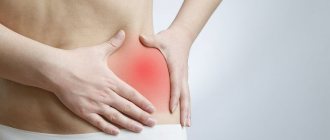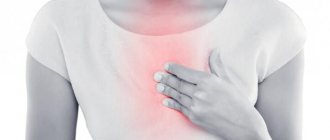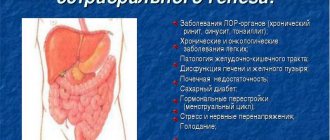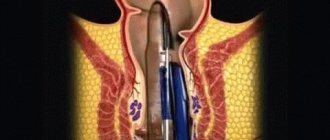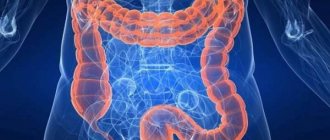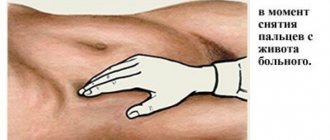Mechanism
Cleansing of the lower intestines occurs during the act of defecation.
Shortly before the process of emptying, a corresponding urge is formed in the body. It, in turn, has an irritating effect on the receptors of the intestine at the moment when it is filled with feces and the pressure in it is increased to 50 mm of water column. The actual act of defecation occurs due to the performance of motor functions by the internal and external sphincters. Outside the process of emptying, they are reduced, so that feces do not fall out of the rectum. In addition, the regulation of the act of defecation is carried out by a special center. It includes the intramural nervous system, as well as the somatic and parasympathetic sections of the sacral segments of the spinal cord.
Let us separately dwell on the mechanism of the act of defecation. Afferent impulses arrive from the receptors of the intestinal mucosa to the spinal center. This happens through the pelvic and pudendal nerve fibers. In the spinal center, the process of forming impulses is started, which are then transmitted to the internal sphincter of the rectum and its smooth muscles.
Participating in the commission of a voluntary act of defecation are:
- Medulla.
- Hypothalamus.
- Cerebral cortex.
Conscious control of the emptying process is formed already in the first 12 months after the birth of the child.
A natural act is not only of a volitional nature. It is partly involuntary. Indeed, with severe irritation of the intestine, the process of its contraction starts, due to which the sphincters also relax.
How often does defecation occur: norm and pathology
Normally, a person empties his intestines 1-2 times a day, and the act of defecation should not bring any discomfort, pain or excessive straining is not allowed. The daily amount of feces reaches up to 500 g, which is normal for the average person. The feces should be easily excreted, sink and leave no traces when washed off. The color of the stool is predominantly brown, and the consistency is formed and softish stool.
Frequent stool
Diarrhea is frequent loose stools. A person with diarrhea may go to the toilet 3 or more times a day, and the stool will be unformed. The daily amount reaches more than 500 g, such feces do not sink and leave traces. The color can vary from light to dark brown, which may indicate the pathology that caused the condition.
Sometimes diarrhea occurs due to excessive consumption of lactic acid products, and the stool will have a characteristic sour odor and light color. Diarrhea is common after alcohol abuse. This is due to insufficient production of enzymes by the pancreas. Such feces have a foul odor, are brown in color, are often “watery” and are difficult to wash off. In a number of intestinal infections, acute and chronic gastrointestinal diseases, diarrhea is a constant companion of a person.
Rare chair
Constipation is a difficult act of defecation, which is characterized by a decrease in bowel movements to 1 time every 3 days. The stool has a hard consistency, often “sheep feces” in the form of round pellets. The color is usually light. To empty, strong straining is required. Most often occurs against the background of:
- poor nutrition;
- abuse of fatty and spicy foods;
- insufficient amount of water drunk;
- sedentary lifestyle.
Sometimes it is a consequence of psycho-emotional disorders. Less commonly, in cases of gastrointestinal cancer.
We recommend reading:
Methods for improving intestinal motility: drugs, diet and exercise
The number of bowel movements for each adult is individual, but normally regularity is required. The intestines should be emptied 1-2 times a day (usually in the morning after breakfast), but not less than once every two days. There are people who normally have a bowel movement once every 7 days and feel great.
Impact on the functioning of internal organs and systems
Without a doubt, the digestive system is designed in such a way that by itself it can perform all the functions assigned to it. However, there are cases when, for some reason, peristaltic contractions are disrupted - that is, they cease to have the necessary intensity and frequency.
That is, food masses accumulate in the gastrointestinal tract and, in addition to the fact that the digestion process itself is disrupted, there is a high probability of many other extremely unfavorable situations and consequences (dyspeptic and pain syndrome, obstruction of the gastrointestinal tract, even rupture). intestinal wall and peritonitis).
The following factors contribute to impaired peristalsis:
- Poor nutrition. The absence or insufficient amount of insoluble plant fiber in a person’s diet leads to the fact that the smooth muscle component of the intestinal wall ceases to receive the necessary “stimulus” to contract - this is, to a certain extent, the cause of the disorder of this function. In addition, the situation is complicated by the fact that with an incorrect diet, the consistency of food masses changes (it becomes significantly denser) - this in turn also complicates the removal of undigested food residues. Due to the long stay of compacted feces in the gastrointestinal tract (which in this case are already called fecal stones), there is a high probability of injury to the intestinal mucosa with the subsequent development of an infectious process or rupture of the cell wall. This situation is especially common in the sigmoid colon.
- Constant stress and neuropsychiatric overstrain. The peripheral nervous system (its autonomic department), which is responsible for the innervation of the intestines, is closely connected functionally with higher nervous activity (that is, with human consciousness, which is constantly exposed to the negative influence of the surrounding world). Thus, if a person is “nervous” and worries a lot, all these moments can negatively affect the functioning of the gastrointestinal tract. In particular, due to disruption of peristaltic contractions of the intestine (the nervous system does not send “signals”), the evacuation function may be impaired.
- Postoperative interventions and adhesive process.
A separate topic is defecation disorders in children. In this case, disturbances may be due to the failure and physiological immaturity of the digestive system.
All these processes lead to the need to artificially cleanse the intestines. In order to correctly perform this procedure and not cause harm, as well as to notice the need for medical care in time, you should understand the physiological basis of the digestive process.
There are also situations when it is necessary to carry out any diagnostic or therapeutic procedures (colonoscopy, fibrogastroduodunoscopy, irrigography, sigmoidoscopy), which are performed only with an empty bowel. Everything is correct - after all, an endoscope is used to visualize the condition of the internal walls of the intestine, but what can be seen if there is feces there?
During the act of defecation, some changes occur in the tissues. For example, systolic blood pressure increases significantly, by an average of 60 mmHg. Diastolic also changes upward. As a rule, it increases by 20 mmHg. This is explained by the fact that during bowel movements a large area of muscle tissue contracts. In addition, when you strain, you hold your breath.
Causes of bowel movement disorders
Eating irregularities can cause constipation.
For some, difficulties with excreting feces appear occasionally, while for others, an overcrowded intestine occurs constantly. Why is this happening? Most often, the feeling of incomplete bowel movement occurs in people prone to constipation or with functional bowel disease. The causes of the disorder are different, even psychological, but the most common among them are the following:
- poor diet (processed foods and not eating enough fiber);
- lack of physical activity leads to stagnation in the pelvic organs;
- stressful situations and nervous shocks;
- use of large quantities of medications, including laxatives (tablets, suppositories, syrups);
- injuries and general diseases of internal organs.
Doctors identify a tendency to constipation as a separate cause that causes a feeling of fullness in the intestines. Insufficient bowel movements are not an independent disease, but a symptom of it. The most common causes of constipation are:
- congenital or acquired abnormalities of the intestinal structure;
- the presence of neoplasms in the organ: benign or malignant;
- disorder of intestinal motor-evacuation function.
Associated symptoms
The feeling of an empty bowel can be aggravated by unpleasant symptoms that indicate the need for immediate treatment. They manifest themselves in the gastrointestinal tract, and also aggravate emotional disorders. Signs of the disease are shown in the table.
| Mental disorders | Gastrointestinal disorders |
| Fatigue | Constipation, mucus-filled bowel movements |
| Hot temper | Diarrhea with mucus |
| Frequent urination | Feeling of heaviness and fullness in the stomach |
| Insomnia, headache | Feeling pain in the right side of the abdomen |
| Noise in ears | A sharp desire to have a bowel movement and the inability to satisfy the need |
| Reclusive lifestyle, avoiding socializing with people, leaving the house or the toilet | Rumbling in the intestines, which occurs regardless of meals |
| Deterioration in appearance - skin, nails and hair become brittle, weak, dull | A small amount of blood in the stool |
. The condition of the digestive organs is important in a person’s life, where regular and comfortable bowel movements affect the functioning of internal organs, skin condition, tone and the state of the nervous system.
However, from time to time the patient may experience ailments, nagging pain in the lower abdomen, and stool disturbances. Such symptoms are characteristic of incomplete bowel movement.
The main symptoms of the disease are:
- constipation or diarrhea;
- flatulence;
- fullness of the abdomen;
- false urges with pain;
- sharp pain on the right side of the lower abdominal cavity;
- bleeding in the form of thread-like inclusions.
The appearance of all symptoms is associated mainly with excitement or after stress, long-term nervous or physical strain.
Sometimes intestinal disorders are accompanied by headache, lack of sleep, feeling of lack of air, weakness, tinnitus, and frequent urination.
One of the symptoms of hemorrhoids is a feeling of incomplete bowel movement and a feeling of heaviness. Depending on the stage and nature of the disease, the manifestation of symptoms may vary in intensity and duration.
Regularity
Normally, the average person should defecate up to 2 times a day. However, it should not be accompanied by painful or other uncomfortable sensations. In addition, a person should not make any significant effort when straining.
The interval between acts of defecation is a purely individual indicator. For the average person, bowel movements occur in the morning. At the same time, the possibility of cleansing in the evening cannot be ruled out.
Normally, up to 0.5 kg of feces should leave the body per day. Feces should be released easily, sink immediately and not leave marks on the plumbing. The color of stool is normally brown (except on days when a person has eaten a coloring food, such as beets). The consistency of the feces should be soft but formed stool.
Symptoms of the condition
The following negative changes are possible:
- constipation;
- diarrhea;
- flatulence;
- feeling of fullness in the stomach;
- acute pain in the abdominal area;
- painful false urge to defecate;
- presence of blood in the stool.
Defecation is a natural process. Normally, it should occur every day, without being accompanied by pain. Only in this case will the body be able to function fully.
If the intestines are not emptied completely, then the person’s well-being and appearance worsen. There is a disruption in the activity of the nervous system. The patient becomes hot-tempered and emotionally unstable.
The following negative changes are observed:
- sleep disturbance;
- migraine;
- noise in ears;
- frequent urge to urinate.
If the act of defecation is not completed completely, the feces become compacted, injuring the intestinal walls. Against this background, the inflammatory process begins. With prolonged manifestation of the syndrome, hemorrhoids develop, and complete or partial obstruction is noted.
Why you shouldn't suppress the urge to defecate
Conscious suppression of bowel movements can lead to overstretching of the rectal ampulla, which, in turn, will affect further acts of bowel movement. Feces are not only digested food, but also a mass of bacteria and their toxins that they produce in the intestines. In particular, it is indole. With a long delay in the act of defecation, absorption of decay products into the blood occurs.
Atonic constipation is another serious problem that occurs when bowel movements are suppressed. If a person does not empty the intestines “on demand,” the nervous regulation of the process is disrupted. The intestinal wall stops responding to signals coming from the central nervous system. Defecation does not occur, which leads to intestinal overfilling and the development of intoxication. Frequent constipation is the starting point for the development of dysbiosis and exacerbation of chronic pathology of the digestive tract.
Ignoring the body's signals (consciously holding back feces in it) leads to excessive stretching of the rectal ampulla. In addition, feces is not only the end product of food digestion. It contains a huge number of bacteria and toxic compounds. The latter begin to be absorbed into the blood in the absence of emptying for a long time. As a result, a person experiences headache, weakness and other manifestations of the intoxication process.
Prevention of deviation
The reasons for the feeling of incomplete bowel movement after bowel movement allow us to accurately determine measures to prevent the disease:
- Psychotherapist consultations, observation.
- Compliance with the daily routine and food intake.
- Avoiding stressful situations, irritability and other provoking factors.
- Increase activity during the day.
- Normalization of weight, getting rid of extra pounds.
Of course, if you have problems, you need to ask your doctor how to properly empty your bowels. Perhaps the patient makes mistakes in this matter.
A chronic pathological process leads to organic changes in the walls of the rectum. Lack of stool and congestion cause poisoning of the entire body. Its striking symptoms arise: frequent headaches, sleep disturbances, irritability, loss of appetite.
Compacted feces injure the anal sphincter during emptying, streaks of blood appear in the feces, and cracks form in the mucous membrane. The associated infection leads to purulent inflammation and ulcers.
The appearance of blood in the stool indicates bleeding or perforation of the intestine, which requires immediate surgical attention. Problems with bowel movements are the cause of constant pushing. During this period, breathing is held, dizziness occurs, and blood pressure rises. This is dangerous for people with heart and vascular diseases.
Frequent use of suppositories and other medications is addictive. In addition, the drugs have contraindications for use.
The main component of preventing intestinal problems is a healthy lifestyle. This concept implies physical activity and giving up bad habits. It is necessary to include a sufficient amount of water and fiber in the diet. To strengthen the nervous system, prevent stressful situations and psychological disorders, it is useful to take B vitamins in combination.
Disorders of the digestive functions of the stomach, which manifests itself as constipation, discomfort, diarrhea and other symptoms, sooner or later occur in almost every person.
These signs are characteristic of incomplete bowel movement syndrome.
Diagnostics
A general blood and urine test will show whether there is an infection in the body.
The main task of specialists is to differentiate the problem of bowel movement from other diseases with similar symptoms. Diagnostics are carried out using specialized testing and a set of laboratory techniques. The list of methods is as follows:
- General analysis of urine and blood. Allows you to determine the condition of the body, eliminate inflammation and infection.
- Study of the chemical and physical characteristics of feces.
- If there is a suspicion that there is an infection in the intestine, bacteriological culture is performed.
- A biochemical blood test to evaluate the functioning of the pancreas and liver, which are directly involved in digestion.
- Examination of stool for the composition of microorganisms.
Instrumental diagnostic methods will help confirm the results obtained and make an accurate diagnosis:
- An endoscopic method that allows you to check the intestinal mucosa and determine the presence of damage and neoplasms. The duration of the procedure is about 10-15 minutes. The study is carried out using special equipment called an endoscope.
- Examination of the colon using X-rays using contrast. You can examine the structure and pathological abnormalities (irrigoscopy).
- Study of anorectal muscle tone and contraction of the small intestine.
Incomplete bowel movement: causes and treatment
The feeling of dissatisfaction after defecation is a problem with which people are embarrassed to go to the doctor. In fact, moments when, after a bowel movement, unpleasant symptoms are felt in the rectum are not uncommon.
Depending on the cause, a treatment plan is prescribed. It should be understood that if the intestines are not completely emptied, this leads not only to a feeling of discomfort and a feeling of heaviness in the abdomen.
The problem can affect the functioning of the gastrointestinal tract and, as a result, lead to serious consequences.
There are several reasons for this discomfort. They are divided into those that occurred through the fault of the person himself and are caused by factors beyond his control. The most common reasons:
- Irritable bowel syndrome. This disease is characterized by a feeling of nausea, diarrhea with alternating constipation and a number of other negative factors that are caused by inorganic pathologies (that is, there are no problems at the level of organ function).
- Haemorrhoids. If nodes are observed inside the rectum, this leads to an increase in its size, disruption of the functioning of veins and blood vessels, as a result, it seems to the person that the intestines are not completely emptied, although in fact this is not the case.
- Polyps. Neoplasms do not allow feces to pass freely, resulting in obstruction. Polyps are benign formations, but if they are not removed surgically, they can develop into malignant ones - a cancerous tumor will appear.
- Anatomical defects in the structure of the rectum. Occur after operations on the gastrointestinal tract.
- Inflammation. Inflammatory processes destroy the rectum, the mucous membrane is damaged - feces cannot pass freely.
- Psychological problems. These diseases (eg, stress, neurology) are not usually recognized as causes of bowel dysfunction, although they are the cause in 20-25 percent of cases.
Only a specialist can determine an accurate diagnosis. To do this, they resort to various types of research, including testing for the presence of tumors. Only after identifying the cause of incomplete rectal emptying can an effective treatment plan be prescribed.
Symptoms
The clinical picture of incomplete emptying is immediately clear - characteristic symptoms are felt. They may not be present after every bowel movement, but in any case they are permanent.
In addition to the main symptom, there are others. They do not appear all at once, and may even be completely absent. Their typology depends on the cause that led to the disease.
In particular, some of the most common are:
- increased gas formation;
- aching, sometimes tingling pain in the intestinal area;
- feeling of discomfort on the left side;
- decreased appetite due to a feeling that the intestines are full;
- frequent constipation or irregular bowel movements (less than once every two days);
- nausea and a feeling of bitterness in the mouth;
- pain during bowel movements, bloody discharge may be present in the stool;
- the appearance of irritability and disturbance of the psychological state;
- feeling tired, depressed, etc.
The symptoms are quite similar to other gastrointestinal diseases. The cause can only be determined after examining the patient.
Normal bowel movements
Each human body is individual, so bowel movements may vary significantly.
The frequency of bowel movements depends on nutrition and diet, the characteristics of the gastrointestinal tract, metabolism and many other factors. But on average, complete bowel movements should occur once or twice every one or two days.
If you stool more than twice a day, then this indicates a tendency to diarrhea, and if less often, to constipation.
What is the danger
The feeling of incomplete emptying in itself causes discomfort that interferes with normal life activities. As a result of the fact that the body is not cleansed of toxic substances, they accumulate and significantly affect the functioning of all systems. There is a decrease in immune functions, problems with digesting food, and inflammatory processes.
Incomplete bowel movements cause discomfort
But it should be understood that this pathology appears as a result of various kinds of reasons. Some of them are easy to treat, for example, if we are talking about minor psychological problems or poor nutrition. If the feeling of incomplete emptying is caused by polyps or cancerous tumors, then treatment will be difficult and lengthy.
Treatment
Problems with bowel movements require immediate diagnosis and appropriate treatment. To determine the cause, laboratory research methods are used (general stool analysis, for the presence of bloody discharge), blood tests and biochemistry, digital examination techniques, ultrasound of the gastrointestinal tract, colonoscopy, CT, X-ray, MRI and more.
Nutrition
Proper nutrition during and after treatment is the basis. Without compliance with the correct intake of BZHU, any treatment will not be effective. But besides this you will need:
- introduce a maximum of products that contain fiber;
- drink at least 2.5 liters of water per day;
- eat at least 5 times a day in small portions;
- exclude smoked, spicy, fatty foods;
- completely eliminate alcohol.
It is important to establish a normal bowel movement routine. Every morning after breakfast you need to go to the toilet and try to establish a routine in this way.
Medicines are selected depending on the causes that led to the disease. But most often prescribed drugs are from the following groups:
- antispasmodics that reduce pain syndromes;
- laxatives that reduce discomfort due to lack of bowel movements;
- pribiotics that contribute to the activation of microbiocenosis;
- sedatives necessary to calm the nervous system (the intestines are a stress-sensitive organ);
- prokinetics, normalizing peristalsis;
- sorbets that remove the consequences of the lack of a normal bowel movement.
Decoctions will help improve the functioning of the gastrointestinal tract
In case of anatomical defects in the structure of the rectum, polyps, cancerous tumors, adhesions, surgery is prescribed. It is dangerous to self-medicate if you are not exactly sure of the cause of the disease.
Folk remedies
Traditional methods are indicated only if the disease is caused by psychological reasons, improper diet, or stress. Traditional medicine is wary of such treatments, pointing out that they are not always effective. But still, positive reviews of some recipes indicate the success of the therapy. Among these methods:
- Castor oil. Two tablespoons are taken in the morning on an empty stomach.
- Juice from fresh potatoes. Drink half a glass before meals.
- Buckthorn juice. Two tablespoons are poured into a liter of boiling water. The infusion is drunk before meals, 0.1 liter.
- Sauerkraut juice. Drink half a glass in the morning.
- Dried fruit mixture. Mix raisins, prunes, dried apricots in equal quantities, chop and add honey. Eat a tablespoon before meals.
Prevention
The only reliable method of prevention is diet. Eat fiber-rich foods, natural juices, dried fruits, fish, kefir. Also have a positive effect:
- jogging and swimming;
- avoiding stressful situations.
Before using any treatment, consult a doctor. Only he can identify the cause of gastrointestinal dysfunction and prescribe an effective, safe treatment plan.
Incomplete bowel movement is a syndrome that requires treatment. There are many reasons for its occurrence. It is extremely important to identify them in a timely manner in order to select the optimal treatment tactics.
The feeling of dissatisfaction with defecation, observed over a long period, is accompanied by additional symptoms.
The following negative changes are possible:
- constipation;
- diarrhea;
- flatulence;
- feeling of fullness in the stomach;
- acute pain in the abdominal area;
- painful false urge to defecate;
- presence of blood in the stool.
Main reasons
The following causes of the syndrome are identified:
- psycho-emotional shocks;
- exposure to stress;
- injuries of the gastrointestinal tract;
- dysbacteriosis;
- hormonal disorders;
- gynecological pathologies;
- non-compliance with daily routine and nutrition;
- lack of physical activity;
- genetic predisposition;
- elderly age;
- irritable bowel syndrome;
- haemorrhoids;
- polypous formations in the rectal area;
- bowel cancer.
For hemorrhoids
Hemorrhoids are a common disease in which varicose veins are observed in the anus.
The main reason for its development is stagnation of blood in the pelvis. A sedentary lifestyle contributes to pathological changes.
The following symptoms are observed in this condition:
- ulcerations;
- bleeding;
- thrombosis, thickening of veins;
- incomplete emptying of the rectum;
- pain during bowel movements;
- stool contains blood.
For constipation
Constipation is indicated by a change in the nature and frequency of bowel movements, which occurs once every 3-7 days. A person has to constantly push to empty his bowels.
Constipation causes severe discomfort.
The following symptoms appear:
- flatulence;
- feeling that the stomach is bursting;
- pain during bowel movements.
In women, incomplete emptying syndrome often occurs during pregnancy.
Among the reasons for its manifestation are the following:
- During gestation, intense synthesis of progesterone is observed. This hormone helps relax the muscles of the uterus. It also has a relaxing effect on intestinal tissue. The organ becomes inactive and sluggish. Due to weak peristalsis, relief does not occur after defecation.
- In the third trimester, the intestines are compressed by the enlarged uterus and function inadequately. The result is indigestion and a constant feeling of fullness.
- Pregnant women are often overly anxious and nervous. This also contributes to the appearance of this syndrome.
- A woman becomes sedentary closer to childbirth. Due to this, similar problems develop.
Diagnostic methods
Diagnosis involves differentiating the problem from a number of diseases with similar symptoms.
In order to make an accurate diagnosis, the following methods are used:
- general blood and urine tests;
- study of the physical and chemical characteristics of feces;
- bacteriological culture (prescribed if intestinal infection is suspected);
- biochemical blood test;
- analysis of feces for the composition of microorganisms.
4Folk methods
What to do if you can’t go to the toilet without using laxatives? Traditional medicine can be a worthy alternative to pharmaceutical drugs. Their use has a beneficial effect on intestinal motility and helps prevent constipation.
You can soften stool and facilitate its evacuation from the intestines with the help of olive oil. A teaspoon of this product should be drunk every evening before going to bed. Olive oil has a mild laxative effect and promotes natural cleansing of the intestines after waking up.
You can make your intestines work independently with the help of a delicious natural medicine made from dried fruits. To prepare it, you need to take half a glass of dried apples, figs, raisins, dates, pitted prunes, and shelled walnut kernels. Dried fruits are thoroughly washed and scalded with boiling water, after which they are passed through a meat grinder along with the nuts. The resulting homogeneous mass is mixed with half a glass of flax seeds and the same amount of honey, then transferred to a glass container and left in the refrigerator. For the intestines to work, you should take 1 tbsp. l. in the morning on an empty stomach and in the evening before bed.
Fruit and vegetable salad will help normalize intestinal activity in case of chronic constipation. To prepare it, grate 1 large apple and 1 medium-sized carrot on a medium grater. The resulting mass is seasoned with 15 ml of sour cream and eaten daily on an empty stomach. This salad will provide a quick laxative effect and allow you to forget about problems with bowel movements.
You can make the intestines function normally with the help of massage, which must be performed before bowel movement. To do this, a person needs to lie on his back and bend his knees. While in this position, he should stroke the lower abdomen clockwise for 5-10 minutes. During this time, he should have the urge to have a bowel movement. To obtain a quick effect, massage should be combined with the use of traditional medicine, diet and an active lifestyle.
A lazy intestine can cause a lot of problems for its owner and become a real threat to his well-being. Regular difficulties with defecation should alert a person and force him to see a doctor. The specialist will help the patient find out the cause of problems with bowel movements and help select therapy aimed at normalizing bowel function.
How to treat the syndrome?
It is possible to achieve complete recovery by adhering to a comprehensive treatment method.
It is necessary to treat the syndrome not only with suppositories and tablets; great importance is given to the psychological and emotional state of the patient. Serious psychological problems require the intervention of a specialist who conducts psychotherapy sessions. In parallel with the settlement of the psycho-emotional state, treatment is carried out. There are several methods of therapy: traditional (medicinal) and folk.
Possible consequences
Irregular emptying and the use of suppositories and syrups to improve the situation leads to addiction and general malaise and to more serious complications. If defecation does not occur completely or is delayed, the stool becomes dense and, passing through the intestines, leaves cracks and ulcers, resulting in an inflammatory process. Long-term disruption leads to the development of hemorrhoids, partial or complete obstruction.
- How to cleanse the intestines preparations
- The intestines are constantly bubbling and loose stools
- Magnesium sulfate for colon cleansing: how to use at home
- Preparations with live bacteria for the intestines
Preparation
Before a full diagnosis is made and treatment is prescribed, the patient must independently undergo appropriate preparation. In order for the study to show the correct results, and for the doctor to build a treatment strategy, it is necessary:
- Avoid taking antibiotics;
- Do not take laxatives or medications containing iron and potassium;
- Eliminate from the diet foods that cause gas formation - flour products, apples, cabbage;
- Add fish and bran to your diet;
- Eat in small portions;
- Eliminate coffee and alcohol.
Usually, even these minor changes in diet and lifestyle are enough to eliminate the feeling of incomplete emptying after bowel movement, if it was caused by eating habits.
Такие куколки встречаются с достойными мужчинами, лучшие шлюхи в Набережных Челнах, очень любят откровенные ласки и заниматься сексом. Такой самоотдачи, страсти и необузданного желания не сможет проявить ни одна обычная девушка. Стильные лучшие шлюхи в Набережных Челнах, страстные и желанные, они такие интересные и стройные, что у любого появится желание. Не упусти свой шанс.




